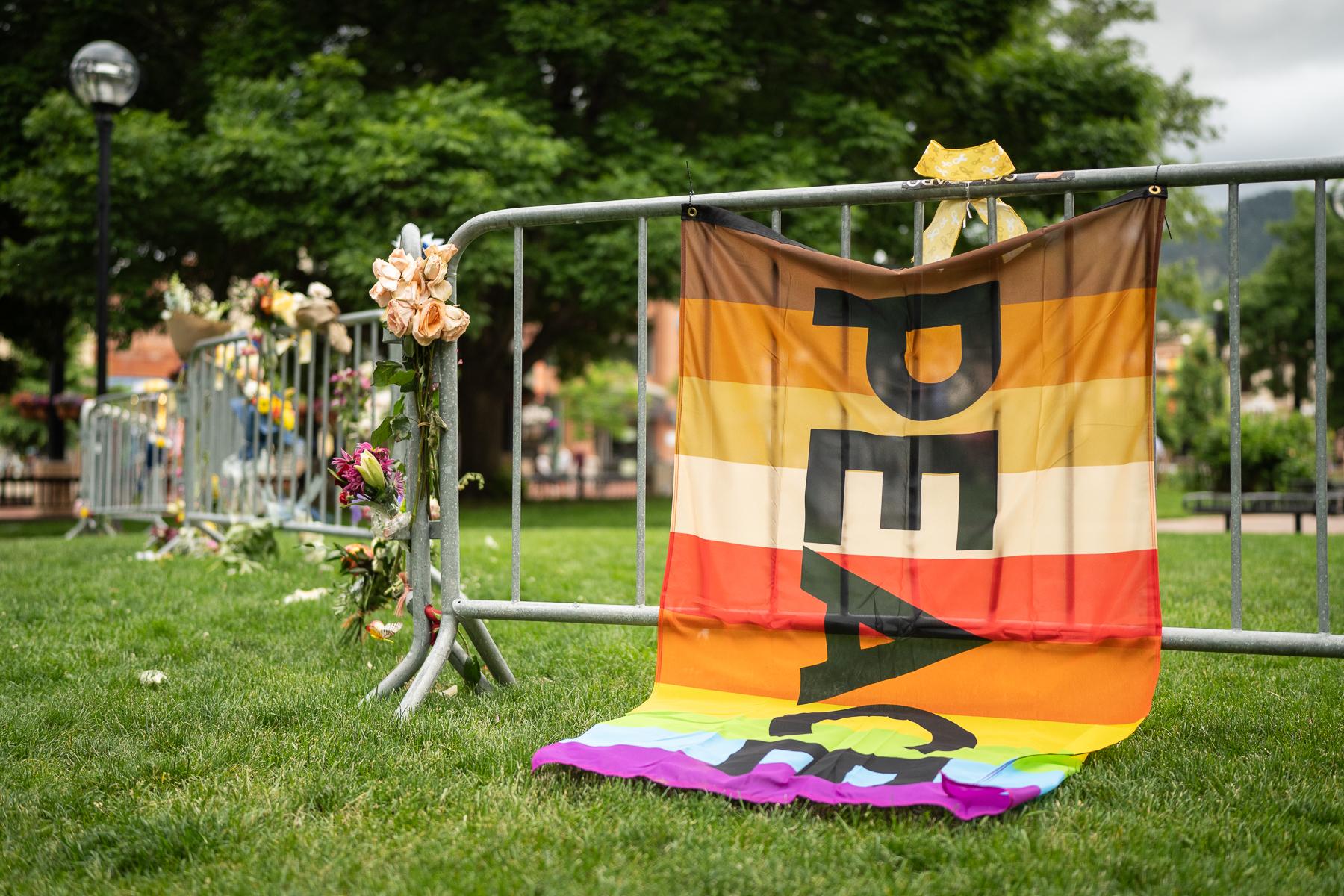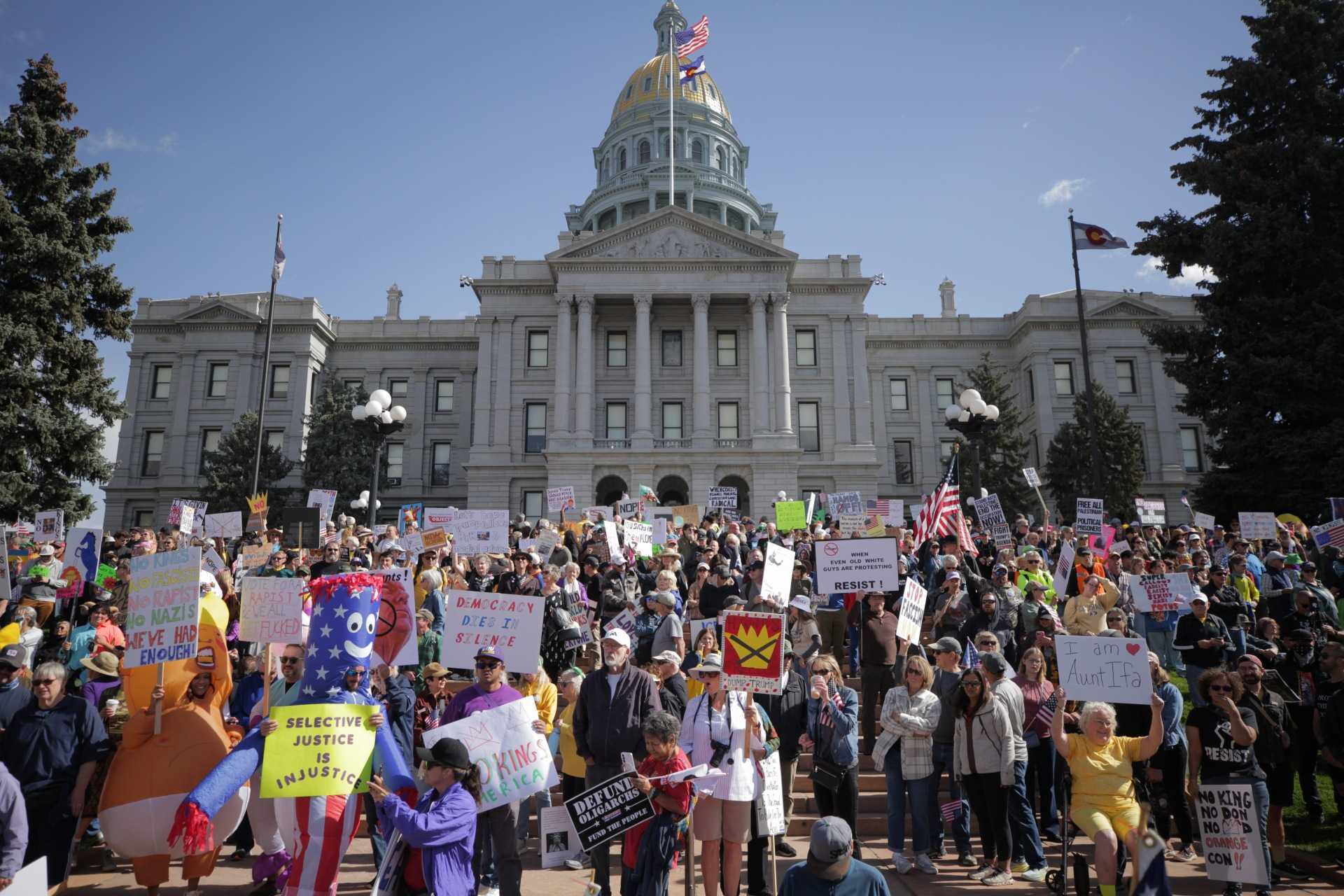
Two efforts by U.S. lawmakers from Colorado to condemn the recent attack in Boulder take different approaches.
One is bipartisan. The other is Republican-backed. And both congressional resolutions hint at the politicization surrounding the attack, as well as the state’s own policies.
On Wednesday, two Democrats — Rep. Joe Neguse, who represents Boulder, and Sen. Michael Bennet — introduced a bipartisan resolution denouncing the attack and the rise in antisemitism. It also supports the survivors and the Run for Their Lives organization. Four other Democrats signed on: Sen. John Hickenlooper and Reps. Brittany Pettersen, Diana DeGette and Jason Crow; so did Republicans Reps. Jeff Hurd and Jeff Crank.
“Run For Their Lives is deeply appreciative of this declaration against antisemitism and for the ongoing support and strength of both Congressman Joe Neguse, Senator Michael Bennet, and other representatives around our state since the attack on June 1,” said a representative for the Boulder and Denver chapters of the group in a statement.
It adds that the local chapters of Run for Their Lives would continue to march until every hostage in Gaza has been released by Hamas and that the group would continue to speak out so that “every Jew worldwide is safe from the threats of antisemitism and violence.”
Meanwhile, on Friday GOP Rep. Gabe Evans introduced his own resolution, cosponsored by Colorado Republican Reps. Lauren Boebert, Hurd and Crank. It also denounced the terrorist attack in Boulder.
Boebert and Evans were the only two members of Colorado’s delegation who did not sign onto the other resolution introduced earlier by Neguse and Bennet.
Two resolutions from one state is unusual
Typically after a tragedy, a state’s delegation will work together on one response. Almost all representatives, including Evans, were present for a moment of silence on the House floor Tuesday evening after the Boulder attack. On the Senate floor, both Bennet and Hickenlooper spoke in the aftermath of the attack.
But the differing resolutions highlight the politicization and polarization among lawmakers — both in Colorado and nationwide — in the many responses to Sunday’s attack.
The bipartisan resolution focuses on the growing threat to Jewish communities in the U.S. and the rise of antisemitic incidents, while also showing support for Boulder and the Jewish community:
"Resolved, that the House of Representatives….(5) stands with the Jewish community, for freedom of speech and religion, and against fear; and (6) affirms that hate and violence have no place in the United States, and that all people, regardless of faith or belief, deserve to live free from fear and persecution."
Notably, it never once mentions the attacker by name.
On the other hand, Evans’ resolution focuses on the suspect and his immigration status, while supporting law enforcement. For example:
"Resolved, That the House of Representatives— (1) condemns Mohammed [sic] Sabry Soliman and his antisemitic terrorist attack on peaceful demonstrators supporting the release of the hostages held by Hamas; (2) prays for the quick healing of the victims of Mohammed [sic] Sabry Soliman’s antisemitic terrorist attack."
Evans and other Republicans from both Colorado and beyond have continually criticized the state for what they call “sanctuary” policies. All week, Republican leaders, including President Trump, have focused on the immigration status of Soliman.
According to the Department of Homeland Security, Soliman entered the country in August 2022 on a B2 tourism visa in California that expired in February 2023. He filed for asylum in September 2022 and received permission to work while that application was pending. Soliman moved to Colorado Springs three years ago.
“The terrorist attack in Boulder is another example of why Colorado’s sanctuary states are dangerous to the safety and wellbeing of Americans,” Evans said in a statement released with his resolution.
“Local law enforcement must be able to work with federal immigration authorities to keep Coloradans safe, and we must condemn all acts of antisemitism at every opportunity, not just after attacks like this.”
Evans’ resolution also notes that law enforcement in Colorado encountered the attacker “multiple times since 2022.”
According to a statement from El Paso County Sheriff Joseph Royal, those encounters were traffic stops and non-criminal calls for service. That includes a juvenile contact and two 911 hang-up calls.
Colorado Gov. Jared Polis and Denver Mayor Mike Johnson have pushed back, saying the state and its capital city are not sanctuary jurisdictions and that local law enforcement does work with federal immigration enforcement.
Evans represents the state’s only swing district, and he flipped that seat by less than one percentage point in 2024. That was partly due to concerns over surging immigration during the Biden Administration, as well as inflation and the cost of living. He’s expected to face a tough road to reelection next fall.
Neither Neguse or Evans’ offices have said much on the differing resolutions. Evans’ office would only say his is a “solutions-oriented” resolution.
The Colorado resolutions aren’t the only ones being offered in the House. Florida GOP Rep. Randy Fine has an all-Republican resolution condemning the attack and calling for deportations of people who overstay their visas. New Jersey GOP Rep. Jeff Van Drew has a bipartisan resolution condemning antisemitism and the Boulder attack.
Van Drew’s resolution garnered bipartisan support from Colorado, with Boebert, DeGette, Neguse, Pettersen, Evans and Crow all signing on.
- Boulder attack suspect makes first state court appearance, faces 118 charges
- More than 1,000 people attend vigil for Boulder attack on ‘a walk just like all our others, until it wasn’t’
- Family of Boulder attack suspect is being taken into ICE custody
- Multiple people burned in apparent antisemitic attack on Boulder’s Pearl Street Mall








